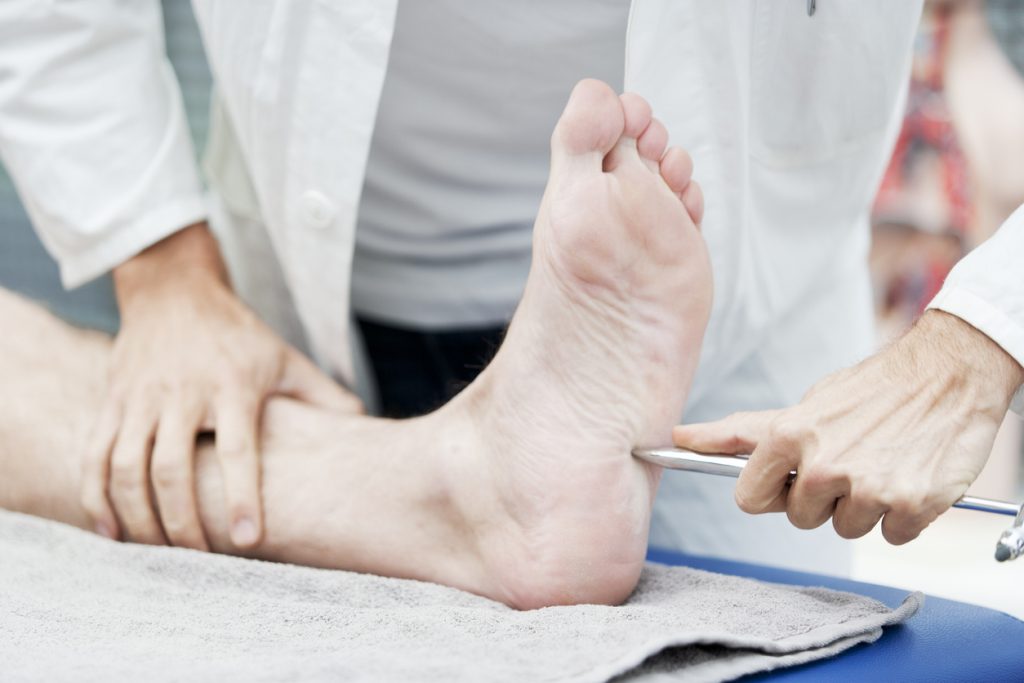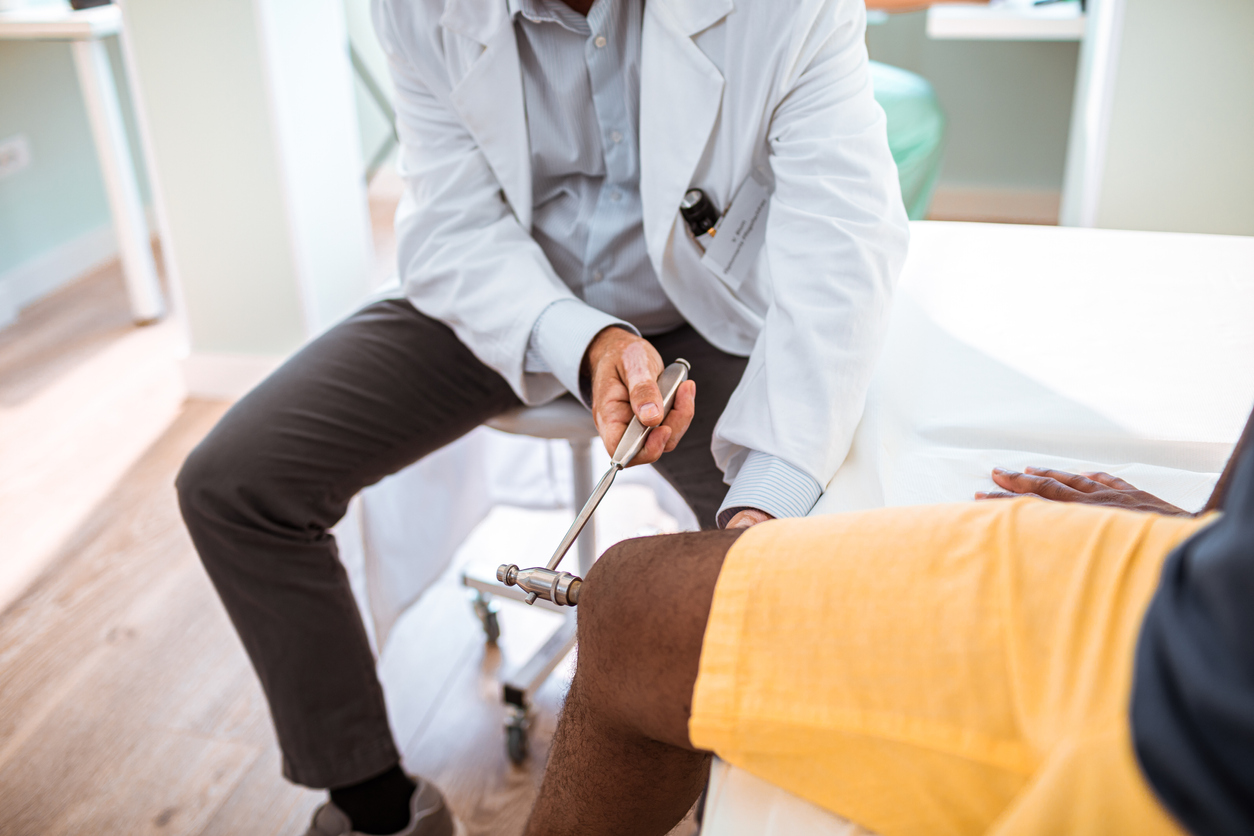A neurological examination checks for disorders of the central nervous system, which is composed of the brain, the spinal cord, and the nerves that come from them. This is one of the first things a neurosurgeon will perform when evaluating new patients. A common component of a neurological exam is testing the patient’s reflexes. This painless procedure is an important tool used by the physician to help diagnose disorders and determine a course of treatment. It also helps determine the need for further imaging tests such as x-rays, CT scans, and MRIs.
What are reflexes?
Reflexes are automatic responses to stimulation. These unconscious movements happen so quickly that we don’t have time to consciously register what happened. Reflex actions do not involve the brain. Simple reflexes are controlled by certain areas of the spinal cord. Testing of deep tendon reflexes is fundamental to a comprehensive neurological examination.
How are reflexes tested?
Reflexes are most often tested using a small, rubber reflex hammer. Doctors have used this inexpensive diagnostic tool in one form or another since the late 1800s. The hammer is tapped in different places on the body, and the physician makes note of the reaction that occurs or the lack of reaction. Perhaps the most familiar place associated with reflex testing is just below the knee cap. With the patient seated, the patellar tendon is tapped, and the response is a kicking motion of the lower leg. Other areas where reflexes may be tested include around the ankles, around the elbows, the wrists, the Achilles tendon, biceps, triceps, and forearm. Another type of reflex test is the Babinski test, in which the bottom of the foot is stroked with a blunt instrument.

What problems can reflex tests indicate?
Reflex tests can help physicians diagnose brain and spinal tumors, spinal cord injuries, nerve compression, nervous and muscular disorders, and other neurological conditions. They help to pinpoint the location of a spinal cord injury. When reflex tests are performed in conjunction with other neurological tests that assess motor function, balance, coordination, and sensation, the physician has a more complete picture of the patient’s overall condition. Reflexes need to be assessed on both sides of the body. If one side presents abnormal or diminished reflexes, there may be issues with the peripheral nervous system.
Reflex testing is just one part of the comprehensive neurological examination given by the neurosurgeon. It will likely be performed each time the patient comes to the office for a follow up appointment, to see if there have been any changes in condition.
Next steps
The team of Board Certified neurosurgeons at Atlanta Brain and Spine Care specialize in the treatment of herniated discs, spinal stenosis, brain and spinal tumors, and other spinal conditions. Contact us today for more information on diagnostic testing and treatment.


